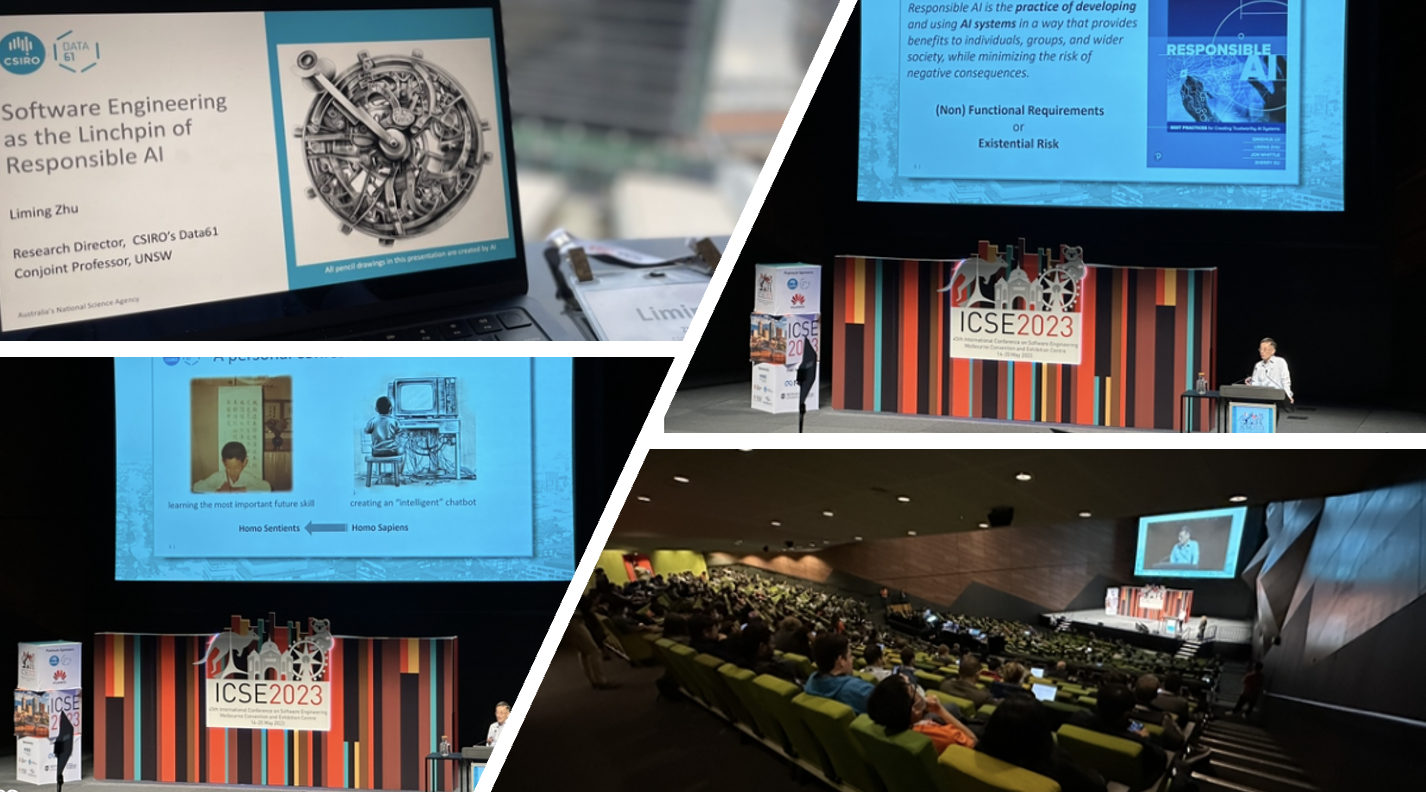Title: Software Engineering as the Linchpin of Responsible AI
Abstract: From humanity’s existential risks to safety risks in critical systems to ethical risks, responsible AI, as the saviour, has become a massive research challenge with significant real-world consequences. However, achieving responsible AI remains elusive despite the plethora of high-level ethical principles, risk frameworks and progress in algorithmic assurance. In the meantime, software engineering (SE) is being upended by AI, grappling with building system-level quality and alignment from inscrutable ML models and code generated from natural language prompts. The upending poses new challenges and opportunities for engineering AI systems responsibly.
This talk will share our experiences in helping the industry achieve responsible AI systems by inventing new SE approaches. It will dive into industry challenges (such as risk silos and principle-algorithm gaps) and research challenges (such as lack of requirements, emerging properties and inscrutable systems) and make the point that SE is the linchpin of responsible AI. But SE also requires some fundamental rethinking – shifting from building functions to AI systems to discovering and managing emerging functions from AI systems. Only by doing so can SE take on critical new roles, from understanding human intelligence to building a thriving human-AI symbiosis.
Time: 2023.03.18 (Thu) 9:30-10:30
Venue: MCEC, Melbourne, Australia
References
Zhu, L., Xu, X., Lu, Q., Governatori, G., Whittle, J., 2022. AI and Ethics—Operationalizing Responsible AI, in: Chen, F., Zhou, J. (Eds.), Humanity Driven AI. Springer International Publishing, Cham, pp. 15–33. https://doi.org/10.1007/978-3-030-72188-6_2
Lu, Q., Zhu, L., Xu, X., Whittle, J., Xing, Z., 2022. Towards a Roadmap on Software Engineering for Responsible AI, in: 1st International Conference on AI Engineering – Software Engineering for AI (CAIN). https://dl.acm.org/doi/abs/10.1145/3522664.3528607
Lu, Q., 2023. Towards Responsible AI in the Era of ChatGPT: Pattern-Oriented Reference Architecture for Designing Foundation Model based AI Systems. https://arxiv.org/abs/2304.11090
Lu, Q., Zhu, L., Xu, X., Xing, Z., Whittle, J., 2023. A Framework for Designing Foundation Model based Systems URL https://arxiv.org/abs/2305.05352v1
Lo, S.K., Liu, Y., Lu, Q., Wang, C., Xu, X., Paik, H.-Y., Zhu, L., 2023. Toward Trustworthy AI: Blockchain-Based Architecture Design for Accountability and Fairness of Federated Learning Systems. IEEE Internet of Things Journal 10, 3276–3284. https://doi.org/10.1109/JIOT.2022.3144450
Lo, S.K., Liu, Y., Lu, Q., Wang, C., Xu, X., Paik, H.-Y., Zhu, L., 2021. Blockchain-based Trustworthy Federated Learning Architecture. https://doi.org/10.48550/arXiv.2108.06912
Xia, B., Bi, T., Xing, Z., Lu, Q., Zhu, L., 2023. An Empirical Study on Software Bill of Materials: Where We Stand and the Road Ahead. Presented at the ICSE, arXiv. https://doi.org/10.48550/arXiv.2301.05362
Xu, X., Wang, C., Wang, Z. (Jef), Lu, Q., Zhu, L., 2022. Dependency tracking for risk mitigation in machine learning (ML) systems, in: Proceedings of the 44th International Conference on Software Engineering: Software Engineering in Practice,https://doi.org/10.1145/3510457.3513058

